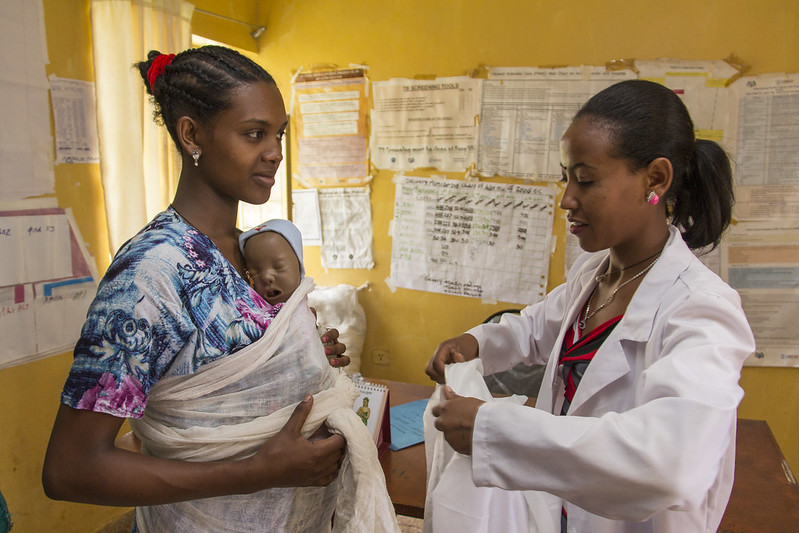
GREETINGS from the TASK FORCE SECRETARIAT
Dear Friends,
I am pleased to share the first Task Force newsletter of the year that includes updates on the recent Task Force Steering Committee meeting, results from the last annual members’ survey, a new CSA resource and takeaways from the Sierra Leone trip, a Task Force member spotlight, and information on the Task Force conference.
We have a robust agenda for the year ahead, and are particularly looking forward to our first Task Force-hosted conference to examine equity and how we can advance the Child Survival Action (CSA) Initiative to accelerate the 2030 Agenda.
Sincerely,
Dyness Kasungami, Director of the Child Health Task Force
TASK FORCE STEERING COMMITTEE MEETING
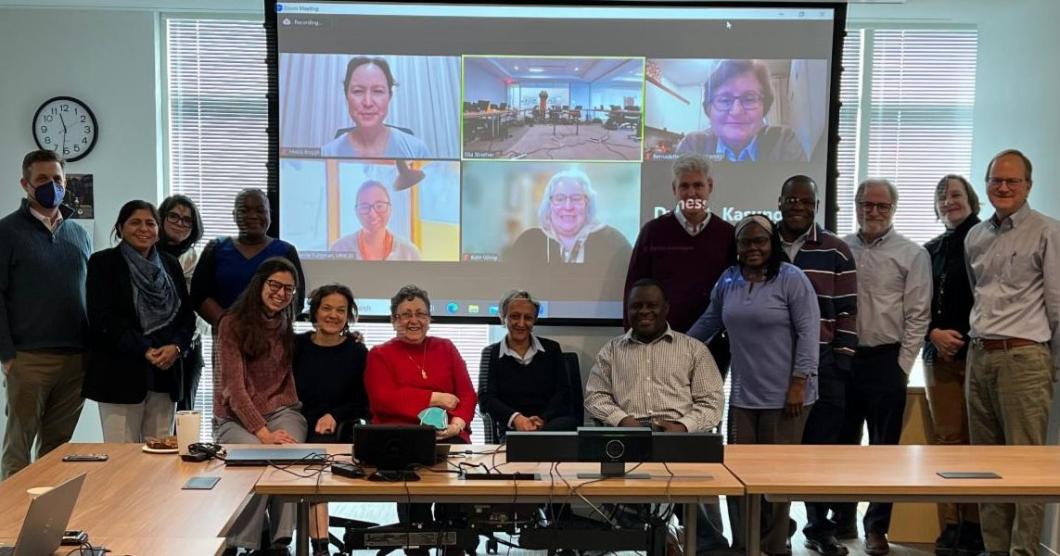
On February 1-2, the Task Force’s Steering Committee (SC) convened its first in-person meeting in three years at JSI’s DC office. We also welcomed for the first time SC members from the Ministry of Health, Malawi and Makerere University, Uganda. The SC acknowledged the progress achieved toward the Task Force’s mandate, detailed in the Secretariat progress report.
The SC agenda focused on:
- Advancing the vision of the CSA in three thematic areas: country engagement, advocacy, and results and accountability;
- Approving plans to hold a virtual conference for members to share, connect, and inspire each other to address inequities in child health;
- Reviewing the feedback from Task Force members’ survey to guide how the network moves forward.
As next steps, the Secretariat will:
- Coordinate the dissemination of the Child Survival Action (CSA) vision document;
- Support each thematic action team to advance its work, including launching the CSA at the upcoming 2nd Global Pneumonia Forum in Madrid in April;
- Announce opportunities for Task Force members to engage in the CSA especially at the country level;
- Finalize and announce the plans for the Task Force’s virtual conference;
- Share the full report and recommendations of the members’ survey.
CHILD SURVIVAL ACTION UPDATE
CSA Blueprint
The Task Force is pleased to share the CSA: a Blueprint for Advocacy and Action to guide and coordinate country, regional, and global advocacy efforts to elevate child survival as a priority policy concern, mobilize domestic and global investment, and foster accountability. The CSA Blueprint’s three guiding principles include:
- All in it together for the whole child;
- Country-led, evidence-based prioritization and linkage with regional platforms;
- Integration of community structures and actors.
ACT NOW: We urge you to take a look at the Blueprint, available on the Task Force’s website, and adapt it for your advocacy needs.
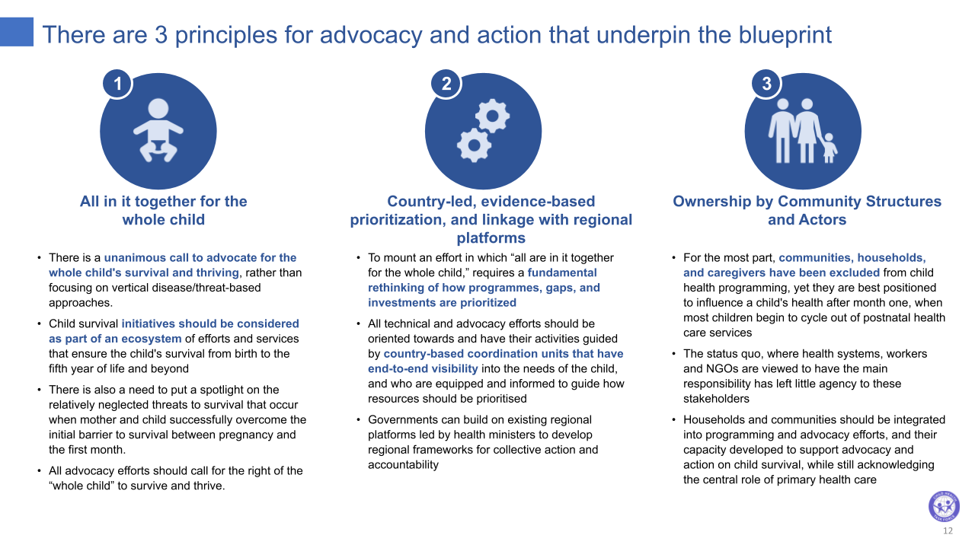
CSA Country Mission: Sierra Leone
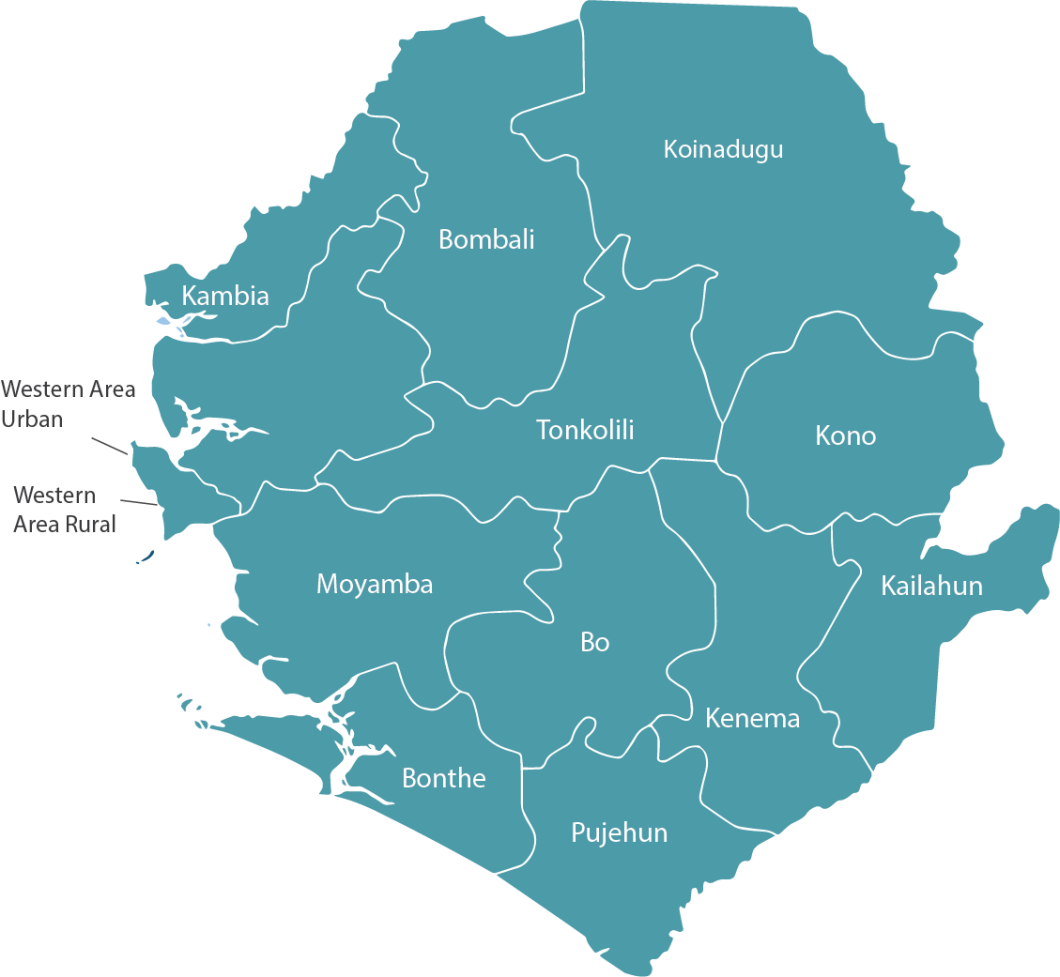 On November 14-18, the Task Force Secretariat had the privilege of being part of the first CSA Initiative country mission in Sierra Leone with Save the Children, UNICEF, USAID, and WHO. With the Ministry of Health’s (MOHS) strong leadership and relevant policies and guidelines in place, Sierra Leone is set to strengthen the CSA agenda as it currently revises its reproductive maternal, newborn, child and adolescent health (RMNCAH) strategy.
On November 14-18, the Task Force Secretariat had the privilege of being part of the first CSA Initiative country mission in Sierra Leone with Save the Children, UNICEF, USAID, and WHO. With the Ministry of Health’s (MOHS) strong leadership and relevant policies and guidelines in place, Sierra Leone is set to strengthen the CSA agenda as it currently revises its reproductive maternal, newborn, child and adolescent health (RMNCAH) strategy.
During the busy week, we joined a workshop hosted by the MOHS where stakeholders identified feasible solutions and priority actions that can address existing bottlenecks affecting under-five mortality reduction, both in the long and short term. Using this input, the global team supported the MOHS to draft an action plan with clear milestones and targets for 2023-2025 that focuses on the most urgent issues of under-five mortality reduction. The plan will be further refined and eventually incorporated into the country’s broader RMNCAH strategy revision that seeks to ensure children not only survive, but thrive. We also had the great opportunity to accompany the RCH Directorate to meet with key directorates/programs and partners to not only encourage alignment and support for the Child Survival Action plan, but also identify opportunities for collaboration.
Key Takeaways:
- Donors are supportive of moving away from disease-focused programs and toward integrated service delivery that can support and tackle multiple causes of child mortality;
- Sierra Leone has plans and mechanisms in place to address many of the bottlenecks that affect the reduction of under-five mortality, and as CSA partners, we can look to find ways where we can support the country so that it can deepen, intensify, and scale these efforts.
We look forward to this strategy moving forward and supporting other countries among the 54 that need accelerated action to meet the SDG under-five mortality target of 25 or fewer deaths per 100,000 live births.
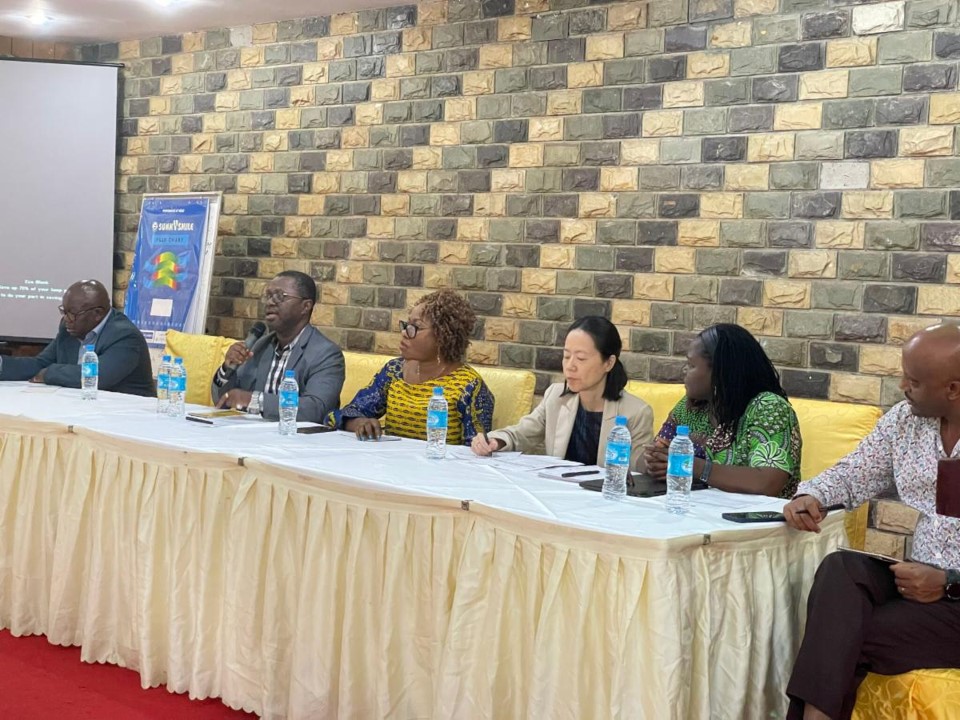
2022 MEMBERS' SURVEY RESULTS
In December 2022, the Secretariat conducted its annual members' survey to solicit feedback on the Task Force's progress, gauge members' thoughts on the usefulness of the resources and support offered, and request input on needed resources/training and ways to engage members on the CSA work. Thank you to all who took the time to complete the survey! Below is a snapshot of the preliminary survey results:
- We received a total of 150 responses from 39 countries.
- In the 12 months preceding the survey, the three subgroups that had the most participation from respondents included Quality of Care; Nutrition; and Institutionalizing iCCM and Emergencies and Humanitarian Settings (tied).
- Most respondents (77%) either strongly agreed or agreed that the Task Force is on track to achieve its goal.
- The majority of respondents found the Task Force’s work in the different thematic areas as very useful or useful. In particular, Partnership with Countries improved by 11 percentage points from the previous year’s survey.
- Respondents provided suggestions on ways we can achieve our goal such as: including more government entities in webinars to help us understand how we can better coordinate with them; strategically engaging funders and countries; hosting in-person meetings; and scheduling small discussion groups for members to hear how they are using the shared evidence and resources to implement programs.
A full report on the survey results is forthcoming and the Secretariat will host a webinar to discuss the findings and next steps.
TASK FORCE MEMBER SPOTLIGHT: RABIU IDRIS YAU
 Name: Rabiu Idris Yau
Name: Rabiu Idris Yau
Country: Nigeria
Position and organization: Monitoring and Evaluation Officer, USAID Advancing Nutrition Project
Work focus: I have a passion for improving child health and maternal and child nutrition and provide technical assistance to the state to generate evidence for policy-making advocacy and implementation. I have been working at the community level and seen people suffering from preventable diseases (i.e. anemia in pregnancy) which resulted in low birth weight, stillbirth, and sometimes maternal mortality. Because of this, I have been dedicating my time to provide the necessary technical assistance to people at various levels of program implementation. Such challenges also enhanced my curiosity to learn more on child health by learning some of the components of quality of care and to support the government of Nigeria achieve sustainable development.
What can we do to advance the 2030 Agenda? To provide more learning packages, based on the lessons learned from program implementation across the world.
I learned a lot by attending the Task Force webinars and reading the shared reports and presentations. I have also recommended some of my colleagues to join the network to enhance their knowledge.
Thank you to all who completed the TF Annual Members' Survey. Rabiu Idris Yau was selected as the featured 2022 winner.
ACCELERATING PROGRESS TOWARDS THE 2030 SDGs CONFERENCE UPDATE
The Child Health Task Force is excited to announce its first virtual conference to unite child health partners to address health inequities to enable all children, throughout the lifecourse, to survive and thrive. The virtual event will be held on June 6-7, 2023 8AM - 12PM EDT.
Conference Objectives:
- Identify key vulnerabilities and risk factors that perpetuate inequities in child health across the countries represented in the Task Force membership.
- Share promising and innovative programmatic and systems-strengthening solutions for reaching the hard to reach children with lifesaving interventions.
- Share experiences, models and frameworks for accountability, measuring and evaluating progress in achieving child health equity.
- Gather inputs to develop recommendations for advocating for governments, global partners, and donors to commit to addressing inequities in child health through renewed energy and focus on child survival and wellbeing.
Thematic Tracks:
- Defining and identifying inequity: Children born in sub-Saharan Africa are 12 times more likely to die before their fifth birthday than children in high-income countries, a statistic that has barely changed over the past 30 years. We know these inequities exist, but in order to address them, we need to define, understand and identify children who are affected.
- Addressing inequities through strengthening Primary Health Care (PHC): Despite intractable implementation challenges and limited funding, some countries have made tremendous progress in improving health outcomes. These countries have strengthened the critical elements of the PHC systems as an inclusive health system.
- Measuring inequities, monitoring and tracking progress: A major challenge has been establishing sustainable, quality mechanisms for measuring inequities and tracking progress
We invite any member of the Task Force who has original research or programmatic lessons to submit an abstract before March 30, 2023. More information, including submission guidelines and form, are available on the website.
SUBGROUP UPDATES
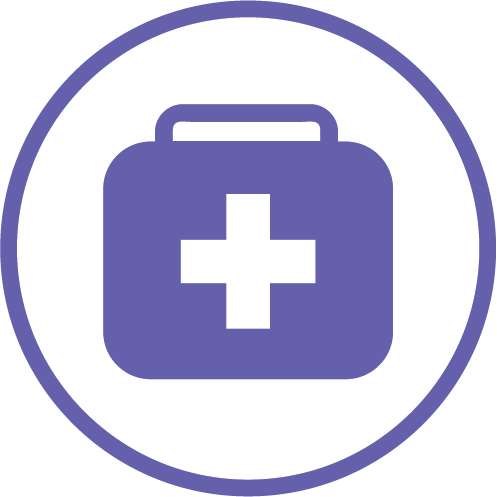
Child Health in Emergencies and Humanitarian Settings
Under the leadership of three new co-chairs, the subgroup held a meeting on November 28, 2022 to revitalize the group and set an agenda moving forward. The recording is available on the website.
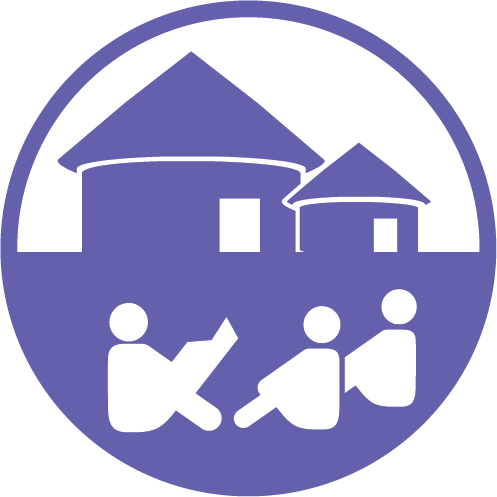
The subgroup co-hosted an informational session in French and English with the QoC and Commodities subgroups to share new Global Fund guidance for the next funding cycle, including funding for non-malaria commodities for child survival. The recording, slides and other resources are available on the website. The iCCM Advisory Group also continued to meet regularly to inform the toolkit for institutionalizing iCCM, which will be finalized soon and posted on the hub.

The subgroup is leading the development of the CSA results framework and has conducted a scoping of existing indicators, milestones and monitoring tools. The group will put out a call for consultation soon to prioritize key tracer indicators.
![]() Newborn and Child Health Commodities
Newborn and Child Health Commodities
The subgroup co-hosted a webinar with the Nutrition subgroup to discuss the process for including nutrition commodities in the WHO Essential Medicines List (EML) using multiple micronutrient powders (MNPs) as a case example. The recording and presentation slides are available on the website. The subgroup also hosted a meeting in January to share the call to action paper produced from the consultations on the bottlenecks and key solutions to improve access and use of amoxicillin and gentamicin. Subgroup members reviewed the paper which is currently being finalized and translated into French. Recording and slides are available on the website.
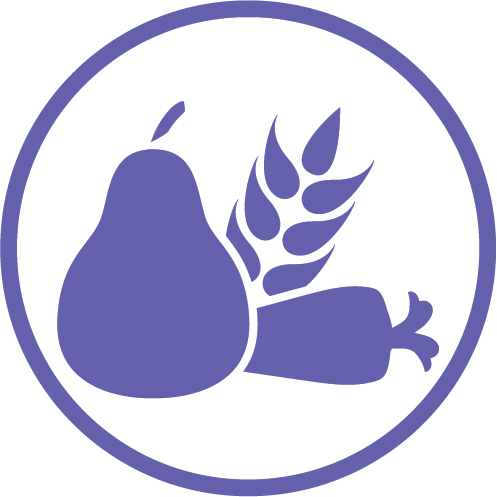
The subgroup hosted a webinar on the relationship between wasting and stunting, sharing evidence from a systematic review led by the Emergency Nutrition Network. The recording and presentation slides are available on the website.
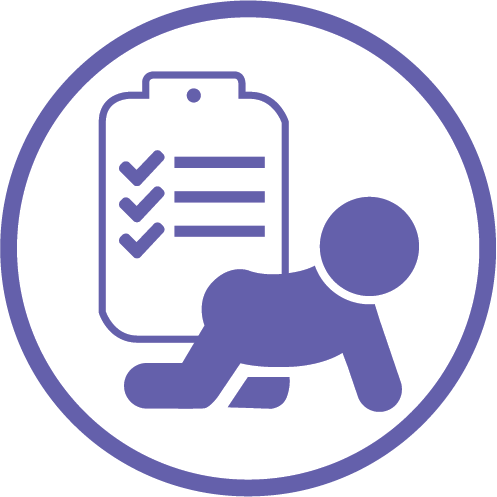
Re-imagining the Package of Care for Children
The subgroup launched a new series on adapting health systems to protect children from the impact of climate change. The most recent session took place February 13, 2023 and focused on the impact of health stress on newborn health outcomes (recording and slides on the website). The co-chairs shared a resource pack of evidence and tools on this topic shared so far during the series. Future topics will include: vector-borne diseases (malaria, dengue, and zika), financing health and climate adaptation, extreme weather events and related childhood disease burdens, and measuring climate adaptation.
Join individual subgroup mailing lists by completing this brief online form.

UPCOMING EVENTS
Task Force Events
- March 28, 8:00 AM EDT [GMT-5], online | Global Launch of the Nurturing Care Handbook and Practice Guide | WHO, UNICEF, the Network for Improving Quality of Care for Maternal, Newborn and Child Health, the Quality of Care subgroup of the Child Health Task Force, and the ECD Action Network are co-hosting a webinar to launch the updated Nurturing Care Handbook and Nurturing Care Practice Guide. These two publications are the latest in a series of resources to support implementation of the Nurturing Care Framework. The webinar will include an overview of the Handbook and Practice guide as well as how they build on existing packages and can be used to enhance advocacy and capacity building efforts at regional and national levels.
- April 26-27, Madrid, Spain | 2nd Global Forum on Childhood Pneumonia | The Task Force will join other child health advocates to co-host the two-day event that will build on the momentum generated by the first Global Forum and serve as a platform for new and ambitious political commitments to accelerate introduction and scale up of lifesaving interventions.
Partner Events
- March 22nd - 24th, Monrovia, Liberia | 3rd International CHW Symposium | With the theme of “Advancing Community Health Worker Programs to build resilient and equitable health systems that accelerate Primary Health Care for Universal Health Coverage,” the symposium will focus on sharing best practices on the complimentary and necessary systems to support scale.
- March 21 8:30 AM-1:00 PM EDT [GMT-5], Washington, DC | USAID 10th Anniversary of the Call to Action | Hosted by USAID, UNICEF, and governments of India and Senegal, the event will explore themes on: PHC, human resources for health, equity, data for decision-making, local solutions, and accountability & commitment. Register to attend in-person. Register to view the webcast in English and French.
- March 5-8, Kigali, Rwanda | Africa Health Agenda International Conference | AHAIC 2023 will bring together Africa’s top thought leaders, political figures, innovators, researchers, policy makers, health workers and community mobilizers for dialogue and action aimed at mainstreaming climate discourse into health policy conversations.
- June 5-30, online and onsite | Johns Hopkins’ Global Health Systems Summer Institute | The institute provides early- and mid-career public health professionals with cutting-edge skills in a variety of global health topics.

NEWS FROM THE NETWORK
- Report: Integrated Management of Childhood Illness in Sierra Leone: Successes, Challenges, and Opportunities | USAID MOMENTUM Country and Global Leadership
- Resource: Updated Nurturing Care Handbook | WHO, World Bank Group, UNICEF, PMNCH, ECDAN
- Resource: Nurturing Care Practice Guide | WHO, World Bank Group, UNICEF, PMNCH, ECDAN
- Report: Protect the Promise: 2022 Progress Report on the Every Woman Every Child Global Strategy for Women's, Children's and Adolescents' Health (2016-2030) | PMNCH, UNICEF, UNFPA, and Count Down
- Journal Article: Lessons Learned From Integrating Infant and Young Child Feeding Counseling and Iron-Folic Acid Distribution Into Routine Immunization Services in Ethiopia | GHSP
- Brief: How Data Systems Can Help Reach Zero-dose and Under-immunized Children | USAID MOMENTUM Routine Immunization Transformation and Equity
- Webinar and Report: Ready to Learn and Thrive: School Health and Nutrition around the World | Hosted by the Task Force, UNESCO, and LSHTM to disseminate the full-length report and highlights
